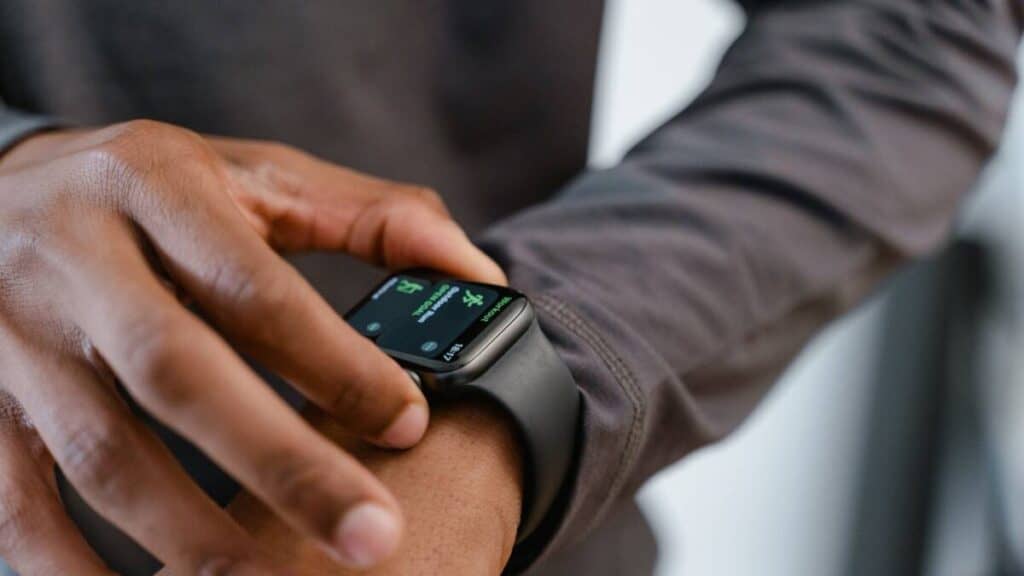Want to know how many calories do you burn running 3 mile depending on your current body weight and fitness levels? I think it’s important to understand how Manu calories you burn running 3 miles because it gives you a great estimate of how much weight you could lose if you use running as your workout routine.
Table of Contents
How Many Calories Can You Burn Running 3 Miles

On average, you can burn between 350 and 500 calories running 3 miles at a moderate running speed. A male that weighs between 180-200lbs running 3 miles can burn 450-500 calories. A female weighing between 160-180lbs running for the same distance can burn 350-450 calories.
Running clearly burns a lot of calories, and the number of calories you burn depends on several factors, including your age, weight, pace, and fitness levels. The fitter you are, the fewer calories you will burn because your body will efficiently utilise energy and calories.
You will burn more calories when you begin running until your body adapts to running. This generally happens around 4 weeks of regular running. You will notice a slight decrease in weight loss or even plateaus for weeks. To continue losing weight, you might need to increase your mileage, run more frequently, change your diet, and eat fewer calories.
The table below gives you the average amount of calories burned during a 3 miles run for most weight groups. To discover the average time it takes someone to run 3 miles for your age group and gender, read this post.
| Body Weight | Running Distance | Average Calories Burned |
| 150-160lbs | 3 Mile | 375 |
| 160-170lbs | 3 Mile | 400 |
| 180-190lbs | 3 Mile | 420 |
| 190-200lbs | 3 Mile | 445 |
| 200-210lbs | 3 Mile | 465 |
| 210-220lbs | 3 Mile | 490 |
| 220 plus | 3 Mile | 525 |
Other Running Distance Calories Burned You Might Like

Can You Lose Weight Running For 3 Miles?
On average, if you run 3 miles at 6 mph pace, you can burn approximately 455 calories. To lose weight and burn fat, you must enter a calorie deficit of 3500 each week. Therefore, 3 miles of running each day will assist in weight loss as you will burn approximately 3,185 calories each week.
However, your diet needs to improve when you commit to 3 miles of running each day. The number of calories you consume is directly linked to the amount of weight you can lose. If you eat near or slightly below your basal metabolic rate and run every day, you should lose around 1 pound of weight each week.
The basal metabolic rate is the minimum number of calories your body needs to function. You can find out your basal metabolic rate by using an online calculator. To lose weight, you need to eat at or slightly below your basal metabolic rate and running 3 miles each day will help you do this. It’s also important to make sure you’re eating a healthy diet that includes plenty of fruits, vegetables, and lean protein.
Furthermore, you need to consume the right amount of protein to maintain and build muscle while you’re running. Muscle is more metabolically active than fat, so it helps you burn more calories even when you’re at rest. Aim to consume 0.5-0.7 grams of protein per pound of body weight each day. So, if you weigh 150 pounds, you should consume 75-105 grams of protein.
I find it easier to drink a protein shake after a run. Here’s what protein I use, and it also tastes amazing, so if you get sugar cravings, it can help with that.

How to Calculate Calories Burned While Running 3 Mile
To calculate the number of calories burned while running 3 mile, you need to first figure out how much time it takes you to complete 3 mile. Then use an online calorie calculator or an app that can show you how many calories your body will burn for every minute of exercise at various intensities.
Multiply the number of minutes it took you to run a mile by the number of calories burned per minute to find out how many calories you burned while running 3 mile. You can also use the METs formula which stands for metabolic equivalent.
This is a method where you multiply your body weight in kilograms by the MET value for one mile and then divide it by 24 hours to get the number of calories burned per hour. This will give you the total number of calories used for running 3 mile.
Overall, it’s important to remember that the amount of calories burned while running 3 mile depends on many factors including your weight, fitness level and age. Using a calorie calculator or an app can help you figure out how many calories you burn for every minute of exercise at various intensities. This can help you get a better understanding of how many calories you’re burning while running 3 mile.

Do You Burn More Calories Running Outdoors or on a Treadmill
The amount of calories burned running outdoors or on a treadmill depends on several factors, including your weight and fitness level. Generally, running outdoors will burn more calories than a treadmill due to changes in terrain and the elements.
Outdoor runs are also more likely to include hills, which require more energy and therefore burn more calories. Additionally, depending on the temperature, running outside may require cooling systems to work harder, resulting in more calories burned.
However, when it comes to running on a treadmill you have greater control of the speed and incline settings, which can help you burn more calories than an outdoor run. This is why some people prefer using a treadmill over an outdoor run, as they can tailor the settings to their individual needs and goals.
Overall, it is important to remember that each person’s calorie burn varies depending on various factors such as weight, fitness level and age. It is best to experiment with different methods of running in order to find out which one works best for you and helps you reach your fitness goals.
How Many Calories Do You Burn Running 3 Mile Summary
How many calories do you burn running 3 mile is around 350 to 500 calories depending on your current body weight and the speed you run. There are many factors that impact the number of calories you can burn running 3 miles and this will impact the amount of weight you can lose. However, these numbers are a great estimate and a good starting point if you have never tracked the number of calories you burn during running.



